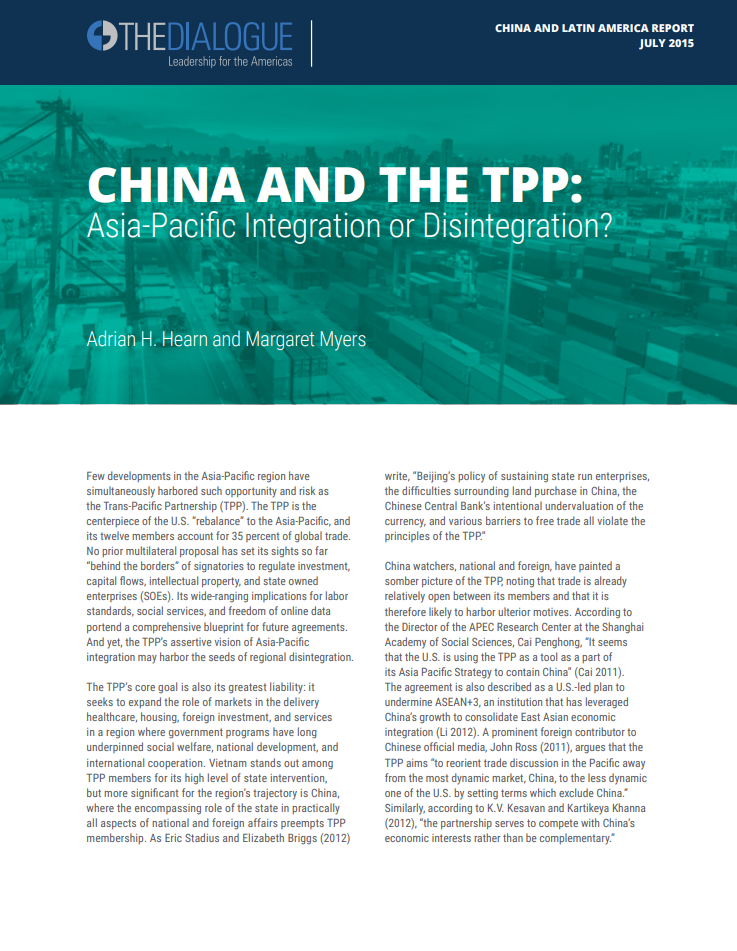The Politics Of Disaster Relief
After a 7.0 magnitude earthquake struck Haiti, the aftershock reached China in ways that few anticipated.The earthquake forced Chinese leaders to navigate the tricky politics of disaster relief.
After much debate in Congress, the US is set to proceed with final stages of the Trans-Pacific Partnership (TPP) negotiations during a ministerial meeting in Hawaii at the end of July.
China, meanwhile, is negotiating the Regional Comprehensive Economic Partnership (RCEP) with the ten nations that comprise the Association of Southeast Asian Nations (ASEAN) and the six nations with which ASEAN has existing trade agreements.
The parallel pursuit of these mega-regional trade agreements raises a critical question: Will they be promoting of greater integration or of disintegration in the Asia-Pacific region?
Some Western scholars have suggested that China is promoting the RCEP to create regional economic integration in East Asia that will exclude the United States. In general, Chinese officials are worried that the TPP will entrench divisions between Asia-Pacific nations favorable to U.S. interests on the one hand and those sympathetic to China on the other.
This new Dialogue report by Adrian H. Hearn, Australian Research Council (ARC) fellow at the University of Melbourne, and Margaret Myers, our China and Latin America program director, examines the competitive tensions and cooperative opportunities underpinned by U.S. and Chinese visions of regional governance.
After a 7.0 magnitude earthquake struck Haiti, the aftershock reached China in ways that few anticipated.The earthquake forced Chinese leaders to navigate the tricky politics of disaster relief.
2009 has not been a good year for U.S.-Latin America relations. Despite their warm welcome at the April Summit, Latin America’s governments made life more difficult than anticipated for President Obama.
What do the election results mean for hemispheric policy and foreign relations?
